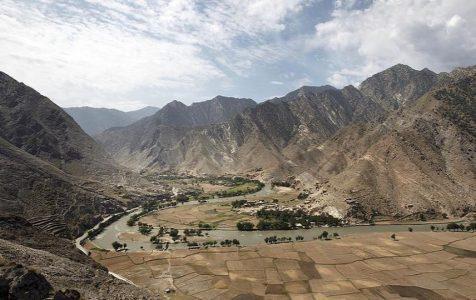
ISIS raises funds in Afghanistan by taxing illegal timber trade
The extremists have opened their own ‘customs’ office in Kunar after many of the hundreds of Taliban fighters in the eastern province switched their allegiance.
ISIS is raising funds in Afghanistan by taxing locals who illegally traffic timber, say residents in eastern Kunar province where the militants operate their own “customs” office.
It comes after many of the hundreds of Taliban fighters in Kunar switched allegiance to ISIS.
The extremist group has been expanding its footprint in Afghanistan since Nato ended its combat mission in 2014. And although US president Donald Trump promised to “obliterate” ISIS when unveiling his new strategy for Afghanistan in August last year, locals in Kunar say the extremists’ reach there only seems to be growing.
“ISIS has (opened) a customs office in the Mazar valley,” provincial councillor Din Mohammad Pilot Sapi told The National.
“You know, under our administration, the smuggling of an inch wood is not allowed but in forest areas ISIS and the Taliban are in control and they allow this.”
Impoverished Kunar residents have long chopped down oak and juniper trees in forested valley areas, selling the timber to businessmen and warlords as a source of income. But in 2016 the provincial government banned the sale of wood from Kunar over fears about deforestation.
Since then, residents have continued to chop down wood but must now smuggle the timber out of the province in order to sell it. The smugglers take routes that pass through territory held by militants to avoid being caught by the Kunar authorities, usually through mountainous areas. Most of these routes used to be controlled by the Taliban who similarly taxed the trade. But as these Taliban fighters began to switch their allegiance, the routes have increasingly been controlled by ISIL.
Since ISIL opened its Mazar valley “customs” office in Kunar’s Sawkai district at the beginning of last year, smugglers operating in areas controlled by the extremists have been forced to take the following action: They drive the chopped wood to the base of mountains in the Mazar valley where it is then loaded onto mules. The smugglers then lead these mules through the mountains to ISIL’s “customs” office where they must pay the militants 3,000 Pakistani rupees (Dh100) — the most commonly used currency in this part of Afghanistan — for each piece of oak measuring 8 feet by 1ft. Juniper, which is more difficult to sell than oak, is less popular with smugglers using the arduous and costly routes through ISIL territory.
In exchange for the tax, the extremists give the smugglers “customs” papers and send them on their way. The wood is then carried by hand to the Dara-Nur valley in Nangarhar where it is sold by the same men who chopped it down in the first place — for how much can vary from day to day and often depends on how far the smuggler had to travel.
ISIL is making good money from Kunar’s illegal wood trade.
“In our area up to now, they (ISIL militants) have taken tax for 25,000 pieces of timber from locals, amounting to 3 million Afghanis (Dh158,708),” said Haji Nusrullah Safi, 40, an elder in Kunar’s Pech valley.
It is not clear exactly how much tax the militants have collected in total at their Mazar valley office but the amount collected from Pech valley smugglers is likely just a tiny fraction.
Source: The National





